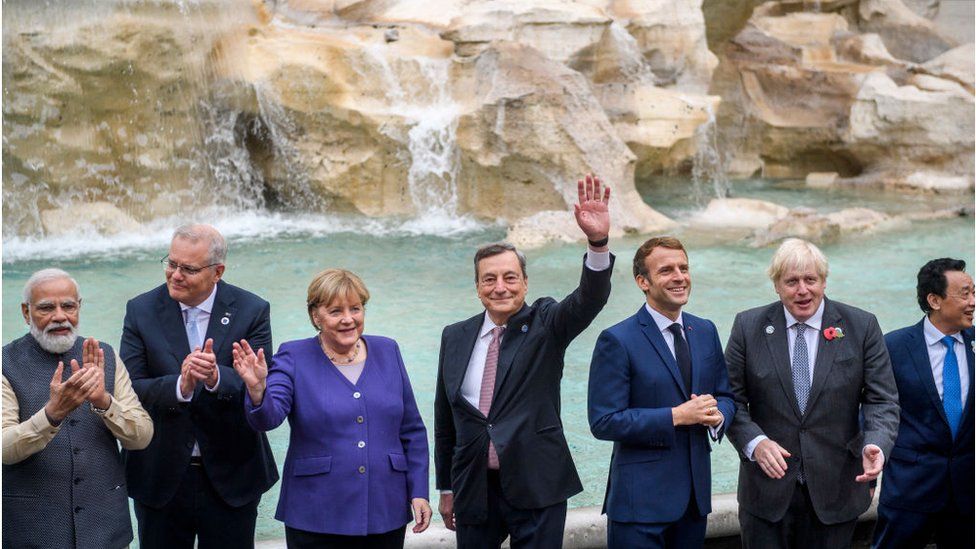The leaders of the world’s richest economies have agreed to pursue efforts to limit global warming with “meaningful and effective actions”.
But the draft agreement from the G20 summit in Rome made few concrete commitments, disappointing activists.
Host nation Italy had hoped that firm targets would be set before the COP26 summit in Glasgow, which has now begun.
The G20 group, made up of 19 countries and the European Union, accounts for 80% of the world’s emissions.
The communiqué, or official statement released by the leaders, also makes no reference to achieving net zero by 2050.
Italian Prime Minister Mario Draghi did however say in his closing statement that all of the G20 countries are committed to the target, which scientists say is critical to avoiding a climate catastrophe.
Net zero means reducing greenhouse gas emissions as much as possible, until a country is absorbing the same amount of emissions from the atmosphere that it is putting out.
The communiqué does pledge to stop financing new, unabated coal plants internationally by the end of this year – a strong message to coal-reliant nations such as China, Russia and India. But the G20 leaders stopped short of agreeing to end coal power in their own nations.

Mr Draghi said that the G20 was closer to reaching the goal of providing $100bn a year in climate financing to developing countries – a key pledge which has been pushed out to 2023.
Activists had expressed their disappointment over the initial drafts of the communiqué, feeling it was not tough enough.
There had been concerns reaching a deal would not be easy, as among the leaders not appearing in person is China’s President Xi Jinping. China is the world’s biggest polluter – although, per person, its emissions are about half those of the US.


